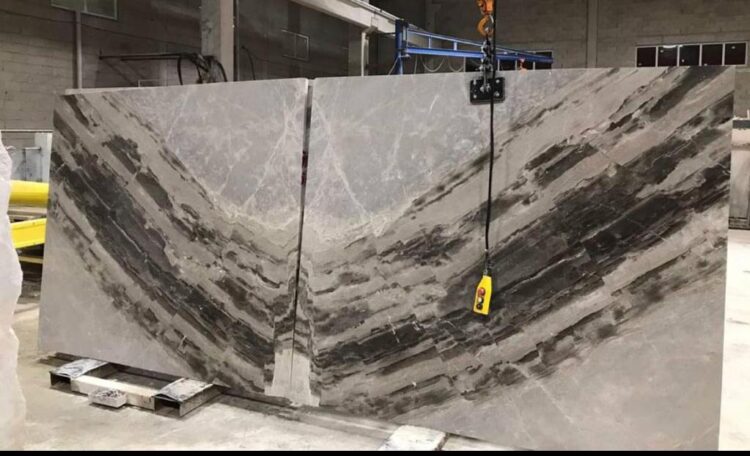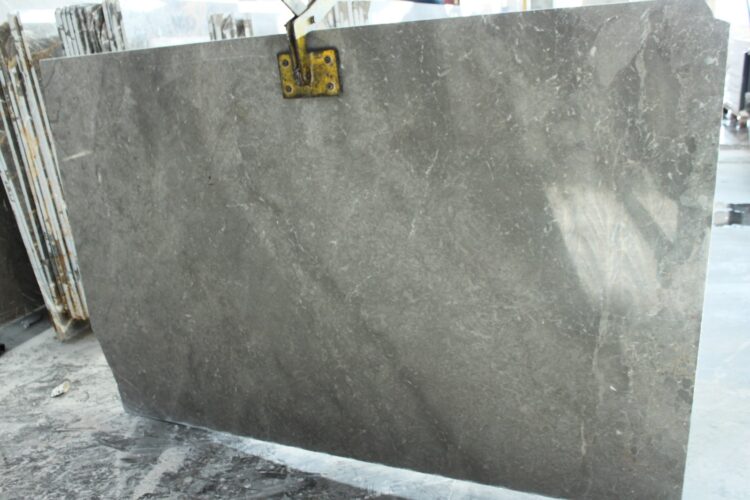The problem of cement-based glues being unable to handle “epoxy and mesh applicated stones” ended with the work of Ionic Stone R & D team.
Most marble tiles and slabs require reinforcing through epoxy applications during the production process. Epoxy is a chemical that bonds cracks and fissures found in the structure of stone. Before the application of epoxy, marble tiles or slabs are first dried out completely in special ovens. When applied onto wet surfaces, epoxy does not work, and its gluing ability does not materialise. Normally, epoxy is applied over both sides of tiles or slabs. The back side of the stone is sprayed with the chemical and then a fibre mesh is placed over the slab or the tile in a way that the mesh completely covers the surface so that the stone is supported and strengthened once the epoxy cures. Subsequently, the slab or the tile is reinserted back to the oven for crystallisation (curing); epoxy contains polymers that require time and heat for bonding. Once cured, stone tiles or slabs become stronger and can be used in installation. Also, epoxy becomes impenetrable with water after curing. However, this presents a problem for installation. Under normal circumstances, marble tiles are installed using cementitious adhesives. For stone, these adhesives contain special ingredients to make them more flexible in order to accommodate contraction and expansion of the stone during temperature fluctuations. Adhesives work with the help of water: they are first mixed with water during installation into a thick paste state. The water-adhesive mixture needs to permeate into the back of the tile and the substrate and then to dry after penetration into the both, so that the setting can take place. However, when the back of the tile is water-resistant as a result of an epoxy and mesh application, the water-adhesive mixture cannot be absorbed by the tile, therefore the adhesion cannot occur. To overcome that problem, after long, arduous and world-patented R & D process, Ionic Stone has commenced on spray of marble granules over to the back of the tile, so that epoxy and mesh are covered completely with these granules. The water-adhesive mixture can then penetrate into the marble granules and the adhesion can easily take place. All Ionic Stone marble tiles that require epoxy and mesh at the back now come with marble granules at the back.
































































 +90 532 585 51 95
+90 532 585 51 95 +90 532 585 51 95
+90 532 585 51 95